Speakers attending the discussion. (Photo: THU HIEN)
On July 24 in Hanoi, the Economic - Finance Magazine organized an online discussion with the topic "International Financial Reporting Standards - Solutions and roadmap for Vietnamese enterprises". The discussion aimed to discuss practical solutions in the process of converting from Vietnamese Accounting Standards (VAS) to International Financial Reporting Standards - a step considered inevitable in the integration journey of Vietnamese enterprises.
Since 2020, the Ministry of Finance has issued Decision No. 345/2020/QD-BTC approving the roadmap for applying International Financial Reporting Standards in Vietnam. By 2024, Law No. 56/2024/QH15 dated November 29, 2024, amending and supplementing 9 laws, including the Law on Accounting, has stipulated that the Ministry of Finance guides Vietnam's accounting standards on the basis of international standards; guides the scope, roadmap and other contents related to the application of international accounting standards.
Thus, the roadmap for step-by-step application of IFRS is set out to help businesses improve their capacity, proactively prepare for implementation, in line with international practices in the field of finance and accounting. At the same time, this is also an important premise to promote transparency and efficiency in financial management, contributing to the sustainable development and integration of the Vietnamese economy.
At the seminar, experts all affirmed that applying IFRS is not simply a change in accounting techniques, but a comprehensive shift in management thinking, requiring businesses to restructure processes, upgrade technology systems, standardize data and most importantly, build a team of human resources capable of approaching international standards.
From the perspective of state management, Mr. Trinh Duc Vinh, Deputy Director of the Department of Accounting and Auditing Supervision (Ministry of Finance), Chairman of the National Chief Accountants Club, said: “Vietnam's GDP in 2024 will reach about 470 billion USD, while import-export turnover will reach 786 billion USD, equivalent to 165% of GDP. These figures show the deep integration of the economy, and therefore, IFRS is no longer a desire but an inevitable requirement. The application of IFRS is an irreversible trend globally.”
Mr. Trinh Duc Vinh also emphasized that IFRS is not a “barrier” but an “opportunity” to help businesses increase transparency, standardize financial information, improve access to capital and affirm their position in the international market. The application of IFRS not only helps improve the quality of financial reports, but also plays an important role in upgrading the stock market and affirming Vietnam as a full market economy.
Mr. Vinh said that the Ministry of Finance is drafting a Circular guiding the application of IFRS in Vietnam, on the principle of creating the most favorable conditions for businesses. The application will be autonomous and voluntary, taking into account the characteristics of each group of subjects. At the same time, to support businesses in the conversion process, the Ministry will continue to coordinate with international organizations such as ACCA and ICAEW to organize free training courses to improve the capacity of accounting, auditing and business leadership teams.
Sharing experiences in implementing IFRS in the world and recommendations for Vietnam, Mr. Tran Hong Kien, Deputy General Director of PwC Vietnam, said: “IFRS is a set of principles-based standards, requiring businesses to accurately reflect the economic nature of transactions. To effectively implement IFRS, the first requirement is that the Board of Directors of the business must proactively build an internal control system and transparent financial processes. The transformation does not start from the accounting department, but from the real commitment of the leadership.”
From a business practice perspective, Ms. Nguyen Thi Thuy, Training Director of Auditcare & Partners Vietnam (ACV) assessed: “The biggest difficulty is not cost or technology, but leadership thinking. If leaders do not see IFRS as a strategy to improve competitiveness, there will be no concrete actions. This is a favorable time to make the transition because the legal framework, support policies and training programs are ready.”
The seminar also focused on the following contents: Why is IFRS considered the "common language" in global finance; the impact of IFRS on the corporate governance system; benefits of IFRS integration; common barriers; the role of technology such as AI, RPA, ERP in supporting the preparation of financial statements according to international standards; and policy proposals to support businesses in the transformation process.
Many questions from businesses were sent to the discussion, focusing on specific implementation steps for small and medium enterprises, implementation costs, data, technology, human resource requirements as well as accompanying training programs.
According to experts, among more than 160 countries and territories that have applied IFRS, many countries with similar contexts to Vietnam have also successfully converted thanks to close coordination between the State, enterprises and training organizations. Therefore, in order not to be "left behind", Vietnamese enterprises need to change their mindset, proactively prepare data systems, invest in technology and train appropriate staff right now.
MINH PHUONG
Source: https://nhandan.vn/huong-toi-chuan-muc-bao-cao-tai-chinh-quoc-te-cho-doanh-nghiep-viet-post896189.html


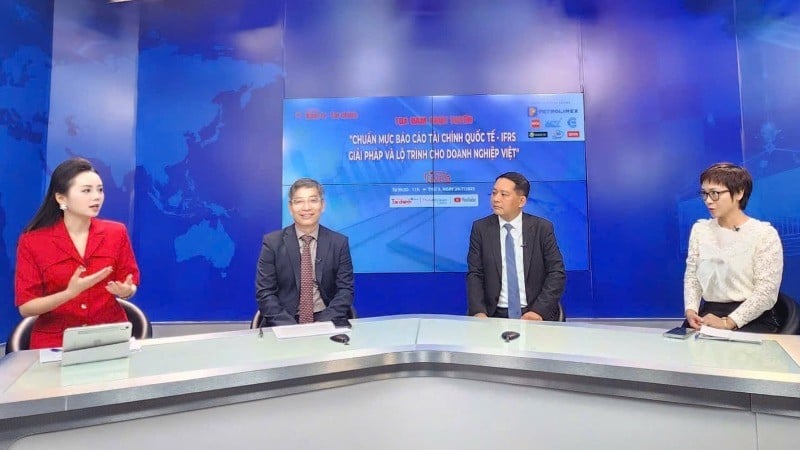



![[Photo] Action for the Community tells stories of enduring journeys – both intimate and great, yet quiet and determined](https://vphoto.vietnam.vn/thumb/1200x675/vietnam/resource/IMAGE/2025/11/15/1763179022035_ai-dai-dieu-5828-jpg.webp)





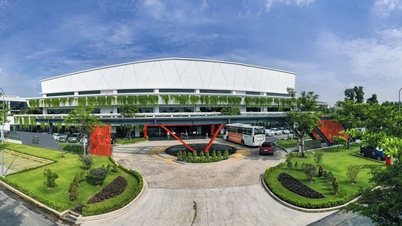




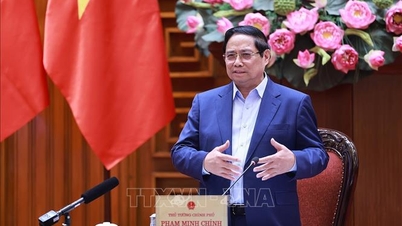
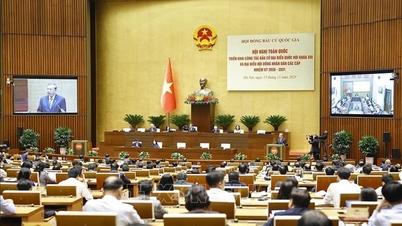
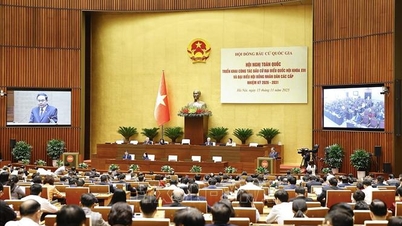







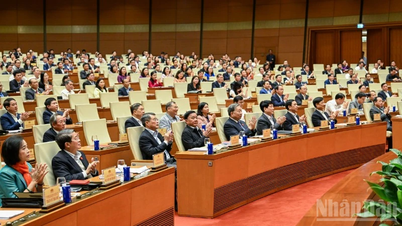
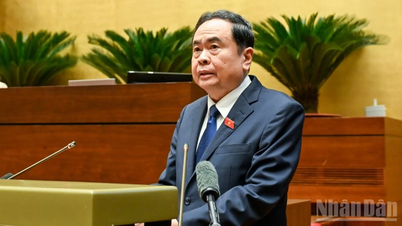

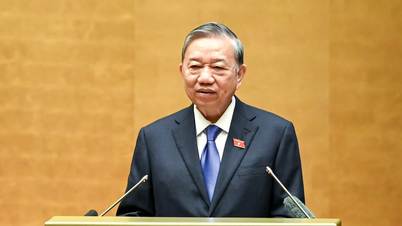
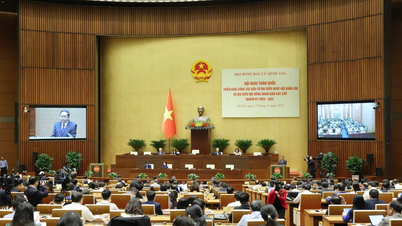
![[Photo] Action for the Community tells stories of enduring journeys – both intimate and great, yet quiet and determined](https://vphoto.vietnam.vn/thumb/402x226/vietnam/resource/IMAGE/2025/11/15/1763179022035_ai-dai-dieu-5828-jpg.webp)








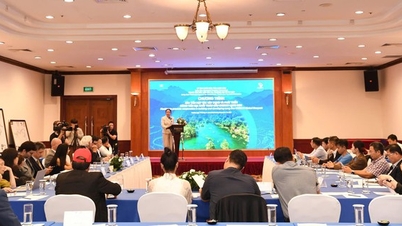








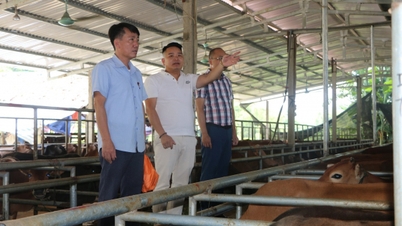



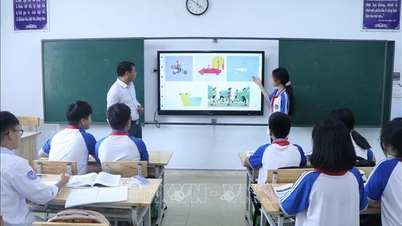





































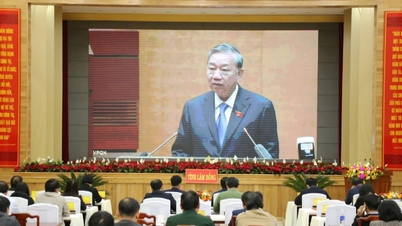















Comment (0)